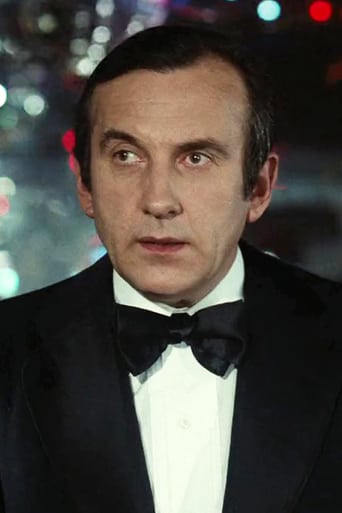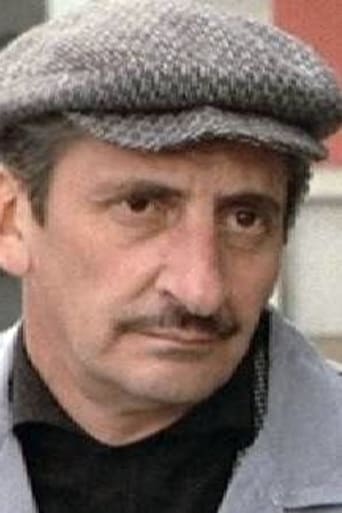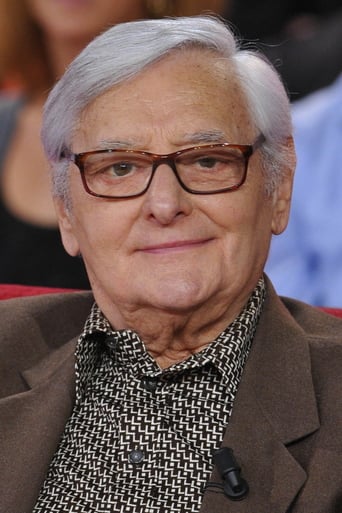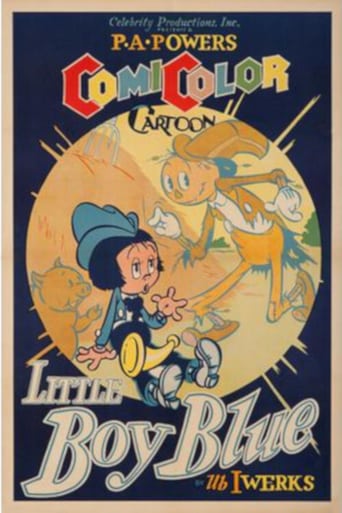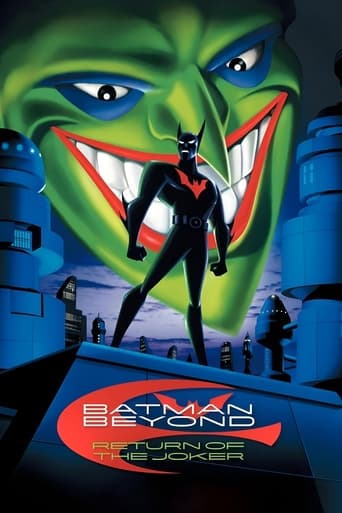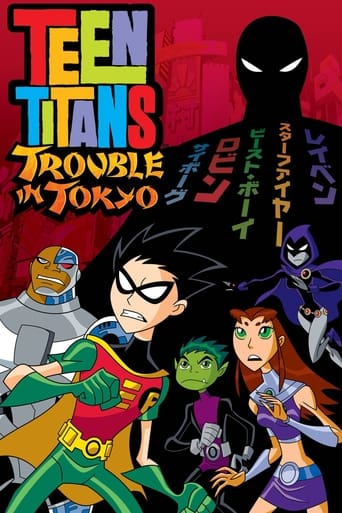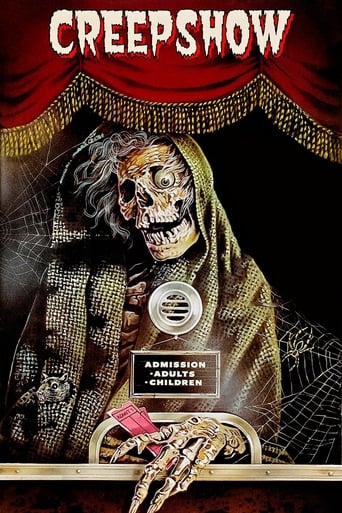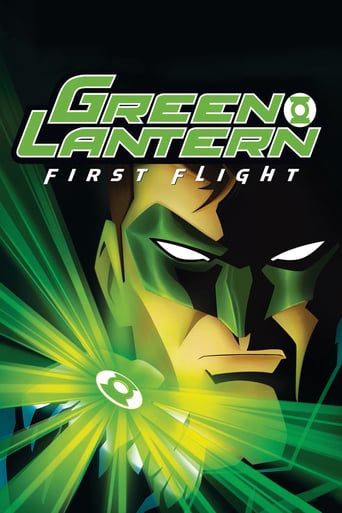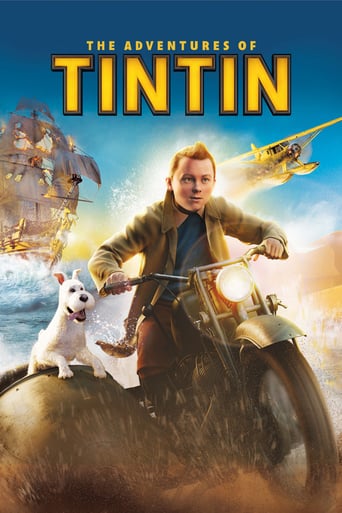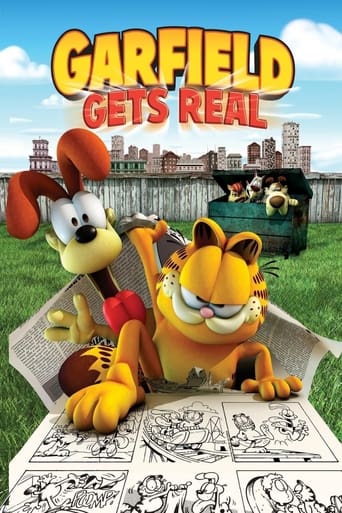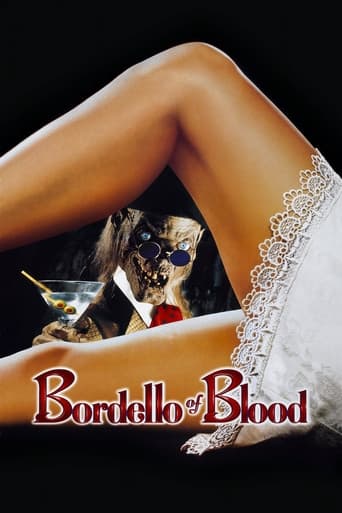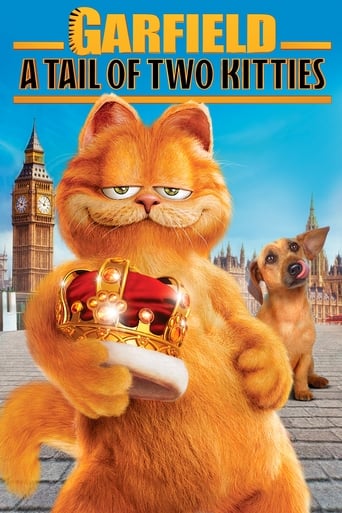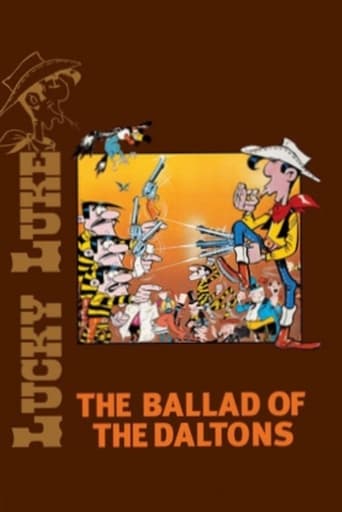
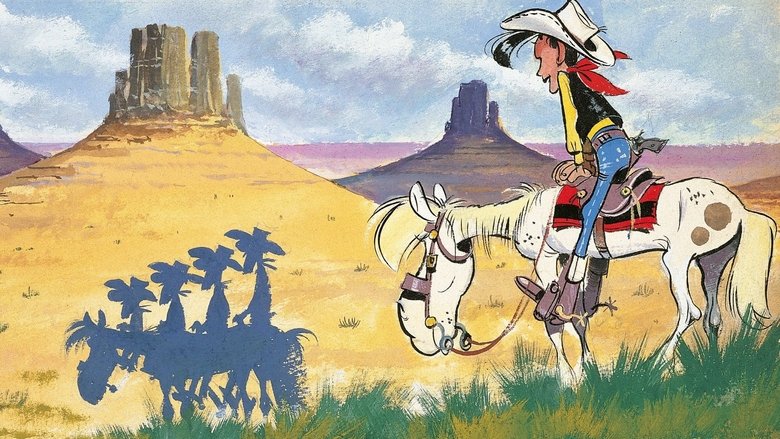
Lucky Luke: The Ballad of the Daltons (1978)
The story opens in a Western saloon, where a young musician with a banjo begins to tell a tale of Lucky Luke and his sworn enemies the Dalton brothers: Joe, William, Jack and Averell. Luke has, once again, as he has done many times before, thrown the four outlaws into jail. The prison is also the abode of a guard dog named Rin Tin Can (Rantanplan in the original French language version).
Watch Trailer
Cast
Similar titles
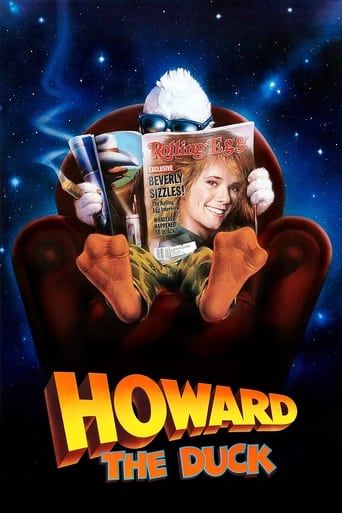
Reviews
Very very predictable, including the post credit scene !!!
Excellent but underrated film
A Masterpiece!
This movie feels like it was made purely to piss off people who want good shows
This is a great animated film that the whole family can enjoy. The First thing you notice is that the film is quite a bit darker than your usual Disney fair. This movie has talk of death , smoking, drinking and satire on religion. It's all played for laughs course. A good thing with this movie is that if you show it to your kids they'll learn something from it.Lucky Luke almost always use his head and solves his problems with cunning. It teaches children to be smart. The screenwriter Pierre Tchernia was clearly smart when he wrote the film. This is not a stupid movie. The voice acting( talking about the Swedish dub only have not seen the french original) is great although I think that ans Lindgren(R.I.P.) plays a few too many roles. But it is better than the dubbing of Lucky Luke: Daisy Town where one person played all roles. Which not only is an insult to the movie but also makes it unwatchable in Swedish. The same thing was done in English.In the end La Ballade des Dalton is a fun well made movie for the whole family that's well worth a watch.
"The Ballad of the Daltons", a title that might sound unfamiliar to American audiences, or people who didn't grow up reading Morris and Goscinny's "Adventures of Lucky Luke", but it's not too late to rediscover this little gem of the 70's, and one of my all-time favorite childhood memories.Along with Asterix, the little Gaul and Tintin, Lucky Luke is one of the most popular and defining characters of the Franco-Belgian Comic-book school. He was created by Maurice de Bevere aka Morris, a Belgian drawer who, like many other people of his generation, was impregnated by all the Hollywood Golden Age classics, and its domineering genre: Western. Morris, and this applies to Goscinny too, spent some time of his life in New York and had the chance to be plunged in the very culture that entertained his youth and childhood, and that inspired the iconic cowboy who draws his gun faster than his shadow (that's his motto). Therefore, all the adventures of Lucky Luke constitute one of the greatest tributes to whatever defines the Old West myth, each one focusing in a particular episode of the Conquest of the West, gold and oil rushes, the telegraph, the railroad adventure... and every album features Western archetypes such as train and bank robberies, outlaws, saloons, sheriffs, prisons and tutti-quanti.Rene Goscinny is simply the greatest European Comic-book writer. He started in the field of drawing too, but quickly understood that his talent was meant for writing, and more than that, for telling funny stories. He grew up in Paris but lived enough abroad to understand that his greatest contribution would be to European humor; and after years of struggle, he was finally touched by the divine light and created his greatest character, Asterix, with the drawer Uderzo. Meanwhile, he would also collaborate with Morris, and injects his style into the cowboys' adventures, that were more realistic at that time, even more violent. Goscinny's humor was not political, not thought-provoking, but always with this mix of wit, inventiveness and sophistication that would appeal to both kids and adults. His greatest creation would be the Daltons brothers: Joe, William, Jack and the tallest and most stupidest one, Averell. Averell embodies one of Goscinny's greatest talent: creating stupid characters with a level of brilliance that makes them particularly endearing, Rin-Tin-Can, the dog, is one of them.Morris' passion for Westerns and Goscinny's wit was the perfect recipe for one of the most popular comic-books in Europe, so popular that it was finally adapted on TV in 1991, in a series starring Terence Hill. The series tried to capture the spirit that nourished the stories of Lucky Luke, but to better understand the success and the popularity of the character, I highly recommend reading the comic-books (especially those written by Goscinny) and occasionally to have a look on this film, made in 1978, after the more average (but no less funny) "Daisy Town", on which the first Terence Hill's film was based. "The Ballad of the Daltons" is an original film (not adapted from an album) that relates the adventures of the Daltons, whose mission is to kill all the members of the jury who sentenced their Uncle Henry to death and the judge who applied the sentence, in ordering to inherit a windfall of money. Talk about a set-up."How did Uncle Henry die?" "Hanged" retorts the notary. "Natural death, that's a consolation" is Joe's comment. The film deals with the notion of killing and death, but don't let your mind preoccupied by this, it was the time where political correctness wasn't prevailing, when Lucky Luke was still a chain-smoker, but the humor and wit displayed in the film is still pure Goscinny. The film also deals with racial stereotypes: among the jury, there is Chinese laundryman and an Injun sorcerer, but every category is tackled with the same dosage of caricature and humor, and I can't see how the movie would offend some audience. Well, it didn't when I was a kid, and I think I turned out quite all right. Anyway, all the archetypes of the Western are here, train chases, gold digging, a drunken doctor, jail escapes, rodeos, a creepy undertaker, a gambler who became a priest and so on and so forth all of that is served by a beautiful melody sung by Bill, the narrator (I can't describe how the very first notes of the music never cease to make me shed some tears) and a great score.The film also provides one of the most (damn, how many superlatives did I use for this review?!) extraordinary movie moments that pay tribute to Hollywood Musicals, it's a five-minute sequence that plunges us in the magic world of Hollywood's Golden Age, and the part that I couldn't wait to come as a kid. These five minutes made me familiar with Gene Kelly and 'Singin' in the Rain' long before I could finally see the film, and there are some songs that would touch a sensitive chord among many movie fans. If only for this part, "The Ballad of the Daltons" is a must-see and to give you an idea, you can find the clip on Youtube, and you'll see that it's more than a goofy Western animated feature, and sometimes the greatest 'American' films are not necessarily American. The theme of Lucky Luke's end credits is the legendary "I'm a Poor Lonesome Cowboy", a music that will forever occupies a special spot in my heart.For the anecdote, René Goscinny passed away in November 1977, right before the Hollywood musical sequence would be completed and as sad as his death was, it's even sadder when you think that he had never the chance to see this beautiful part. Morris left us in 2001. But the legacy of the two authors is intact and I would never thank them enough in my heart, for having created such great characters, and such a great Western comedy.
To be honest I'm surprise this movie dosen't have a bigger cult fallowing, as it's one of more unique animated features I saw. It dosen't try to dumbed down anything for the children, create a kid-friednly world or try to have some a moral lesson at the end.This movie is all about the humor and for most of the time - it's dark! 75% of jokes involves death or if not, they center around such topics drunkenness, religion (to be fair the scene in church is the best part of the movie), there are some non-PC stereotypes (heck, one of the Daltons calls a Chinese person a "Chink") and gun-play.I for once strongly enjoy it! The animation is old but with great music and colors its creates a fantastic atmosphere. Characters are memorable, notably the four Dalton brothers and what I adore about it is how slowly the story builds - un-like the razel-dazzle cartoons we get today.Over all - An underestimated animated film I recommend for any body who don't mind dark humor and a very unPC world. P.S. And yes - If your a Lucky Luke fan you enjoy this movie a such as reading two or three of Lucky Luke books. It's just that good :)
7 years after Lucky Luke dealt with the Dalton Brothers in the western frontier near Daisy Town, Luke and the Dalton's paths cross again, in The Ballad of the Dalton Gang.' A banjo player narrates the tail of how this time, Luke takes the Dalton's to prison. Though once inside, the Daltons are met by Augustus Betting, who is representing the estate of their late relative Uncle Henry Dalton. Throughout his exploits, Henry Dalton amassed quite a fortune, and named his nephews as his heirs, but on condition that they eliminate the judge and jury that sentenced him. Thoug, to make sure that they do their job, Henry Dalton wants Lucky Luke to supervise the boys (since Luke was the most honorable and trustworthy man he knew). The Dalton's manage to break out of prison, and run into Luke. Though they threaten to either shoot him, or give him a share of Henry's legacy. Luke seems to be taking this well, and offers to help rubbing out those the boys are after.Once again, this film falls onto some humor that is probably too different for American audience to embrace. There's a dog named Rin Tin Can who just seems to be a clueless mutt who the law enforcement people keep praising, but doesn't really do much good for the better part of the film. Also, Luke's horse Jolly Jumper is given a speaking voice as well, though he's only understood by the other animals.
